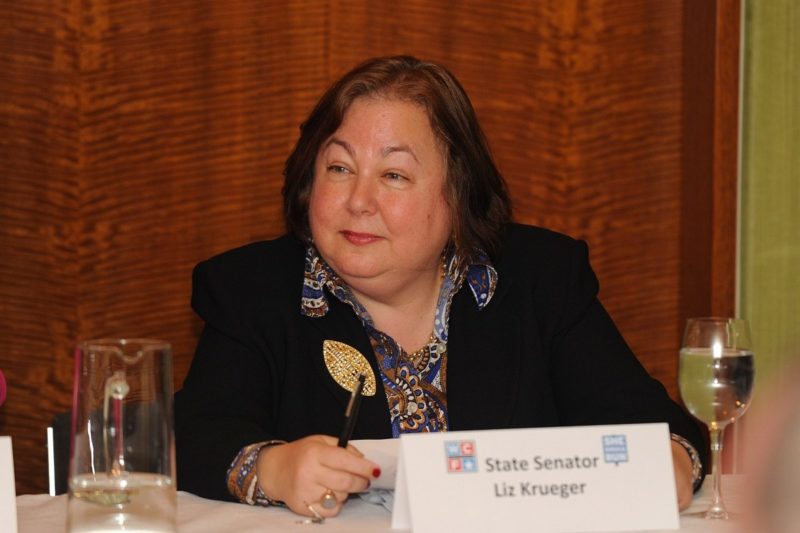New York Democrats Move to Protect Reproductive Rights From Trump
Advocates at the New York-based public policy organization, the National Institute for Reproductive Health (NIRH), said the public should not “rely solely on federal protections to ensure residents’ basic rights."

The New York assembly on Tuesday aimed to get ahead of the impending Trump administration by passing two pieces of legislation to ensure residents maintain access to contraception and abortion care as the incoming administration seeks to roll back health-care gains.
The Democratic-dominated assembly, which convened on January 4, passed the Reproductive Health Act (RHA), and the Comprehensive Contraception Coverage Act (CCCA). The fate of these pro-choice measures is uncertain in the state senate, where Democrats hold a one-seat majority.
Assemblyman Clifford Crouch (R-Bainbridge) was the lone Republican to vote for the measures.
The RHA amendment, sponsored by Deborah Glick (D-Manhattan) would allow state residents to maintain their right to legal abortion care in the event the landmark U.S. Supreme Court decision Roe v. Wade is overturned. Democratic legislators in Illinois have also pushed a measure designed to ensure abortion care access should the Supreme Court outlaw the medical procedure.
Trump has promised to appoint anti-choice justices to the U.S. Supreme Court and has suggested that pregnant people should face punishment if abortion care is outlawed. His campaign later walked back that statement and said that only doctors who provide abortion care should be punished.
The CCCA would enshrine the Affordable Care Act’s (ACA) contraception benefit into New York law, even if federal lawmakers repeal or drastically change the law’s birth control provisions. The bill would ensure residents have no co-pays for at least one contraceptive method from each of the 18 categories recognized by the Food and Drug Administration (FDA).
Advocates at the New York-based National Institute for Reproductive Health (NIRH) said the bills are necessary because the public can no longer “rely solely on federal protections to ensure residents’ basic rights.”
This year’s congressional assault against the protections in Roe began in earnest when Rep. Steve King (R-IA) this month introduced the first-ever total abortion ban in Congress.
Andrea Miller, NIRH president, told Rewire in a phone interview that New York lawmakers have a history of “stepping up” on reproductive rights.
“It is a different day,” said Miller, who is also president of NARAL Pro-Choice New York. “I am hopeful the senators will understand the new moment we are in and that they understand their duty.”
Last updated in 1970, the RHA doesn’t reflect current medical practices and it fails to explicitly guarantee the right to appropriate care later in pregnancy.
The update to RHA would “protect health care providers who perform abortions from criminal prosecution and regulate abortion as a public health, not a criminal, matter,” according to a NIRH statement.
State Sen. Liz Krueger (D-Manhattan), who with Senate Minority Leader Andrea Stewart-Cousins (D-Yonkers) is sponsoring the RHA measure, said in a statement that that New York’s nearly 50-year-old abortion law was “incomplete.”
Like Miller, she urged New York lawmakers to protect abortion care access amid an anti-choice push by Republicans on the federal level.
“For years members of the Senate Majority Coalition have hidden behind Roe, saying that updating state-level laws is unnecessary, that Roe will never be overturned. Clearly that’s no longer a risk we can afford to take,” Krueger said.
